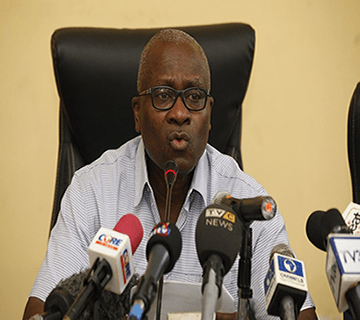
Briefing newsmen on Tuesday, the State’s Commissioner for Education, Dr. Jide Idris, said such rumours and false stories, especially in the social media, are also capable of undermining the efforts being made to contain and manage the outbreak.
The Commissioner, who said the briefing has become necessary in order to douse “the inaccuracies bothering on distortion of facts and outright falsehood being spread in the social media” noted that contrary to the rumours and false information, the Rapid Response Team on the disease are working in accordance with global best practices.
He reiterated that five deaths had so far been recorded in Nigeria since the EVD incident, adding that the seven recovered persons, who are currently being successfully reintegrated with their families and communities, are a confirmation that an infection by the disease does not mean an automatic death sentence.
Dr Idris said the common thread among the recovered cases was their early presentation for supportive treatment, pointing out that, with the development, there are no need to hide friends and relations who are suspected to have come down with the disease. “The earlier they are brought for screening and surveillance, the better the outcome”.
Idris emphasized that a contact becomes infective only when symptoms appear “with fever being the game changer” he added that, by and large, only symptomatic contacts are admitted while asymptomatic contacts are only admitted when the index of suspicion that they may be lost to follow up is high.
He explained further that while contacts are monitored twice daily for temperature changes and symptoms, the homes of contacts coming for self admission or those evacuated for conduct of confirmatory tests, including areas of common use with other tenants or family members, their offices and relevant general surfaces, are decontaminated.
The Commissioner implored Lagos residents not to stigmatize contacts who have been given a clean bill of health urging them to assist in facilitating the re-integration of such contacts into the society. He cited the example of the American doctor who was discharged by Emory Hospital in the United States after being treated of EVD pointing out that he was openly embraced by both the hospital staff and family members.
He also appealed to medical practitioners in both public and private health facilities not to reject febrile patients without proper assessment pointing out that such rejection may not only increase stigmatization but also deter self-reporting. “Not everybody with a fever or hemorrhage has come down with EVD”.
He said contrary to the rumours and false information in the social media, the Rapid Response Team on the virus has continued to function through the working groups which include Contact Tracing, Epidemiology and Laboratory, Health Promotion and Social Mobilization, Case Management and Infection Prevention/Control, Point of Entry and Data Management adding that regular meetings are being facilitated by the Team to develop strategic action plan in line with best practices.
Dr Idris highlighted the mode of transmission of the disease, noting that “once a person is infected with Ebola, the disease is transmissible through direct contact with broken skin, mucous membranes and secretion of an infected person”, adding that human to human transmission is only achieved through physical contact with a person who is acutely and gravely ill with fever being a key sign.




